Ecological agriculture in Lebanon. Products soon to be available in Europe
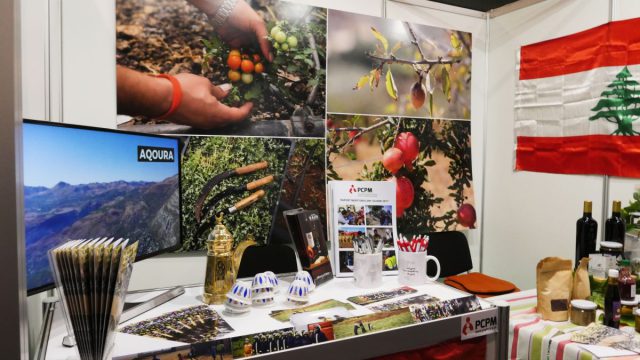
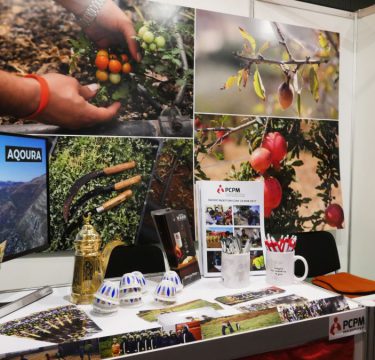
Arabic delicacies in Poland
International visitors that were a part of the World Food Poland fair in Warsaw had the opportunity to witness the taste of Lebanese olive oil, za’atar, pickles, hummus and other Lebanese specialties. Due to the combined support from WFP and PCPM, 9 representatives from different Lebanese cooperatives visited Poland and showcased their unique products.
– We display our products to show importers the Lebanese potential and establish cooperation with European countries – says Andre Abou Haidar, Agricultural Engineer working with PCPM.
– Some villages in Lebanon have a unique natural environment. For example, Bekaa area, and especially in Arsal, throughout the summer time the weather is warm and sunny. Therefore, it is one of the important factors that contributes in the unique taste of sundried fruits and vegetables – he adds.
Thanks to fruitful meetings with Polish importers, Lebanese visitors have learned about the European standards and requirements for certification that includes packaging and marketing strategies, which will later facilitate their attempts to enter the EU market.
Learning about new directions for export is an important development opportunity for Lebanese cooperatives which in turn will potentially create new jobs opportunities in small agricultural towns. On the other hand, this is a possibility for Syrian refugees, who constitutes ¼ of Lebanese society since the outbreak in Syria, to be able to find a legal employment chance in construction and agriculture sector.
Lebanese agriculture needs support
In the recent years, a huge number of Syrian refugees have entered Lebanon due to war. This war has taken away Syrian’s safety, wealth and health, as they now live in terrible conditions facing serious difficulties with finding jobs. The refugee crisis has increased unemployment and lowered the wage per hour of work. Last year (2018), almost 40% of Syrian refugees in Lebanon had difficulties with providing food to their families.
This situation has already lasted for eight years, PCPM has decided to support the underdeveloped agricultural sector in Lebanon (taking into consideration that PCPM is already experienced in this field and has successfully implemented proposed solutions in Palestine). One of the ways is to develop entrepreneurial and agricultural skills for national groups in order to strengthen the position of small farmers in the market.
PCPM is currently conducting a series of trainings that covers several topics in agriculture, entrepreneurship and market development. Both Lebanese and Syrian refugees from three regions: Akkar, Mount Lebanon and Bekaa were invited to participate. Beneficiaries of the project are finding in this trainings the chance to escape from inaction and helplessness, as well as they are hoping that this special knowledge will give them a better chance to find a job. The trainings are attended by representatives of Lebanese cooperatives – especially those, who have declared their willingness to cooperate with the Syrians in the future. Workshop participants gets a wage of $ 3.33 for a completed learning hour, thanks to which participants are more motivated to attend and learn, even though they have to give up some part their jobs.
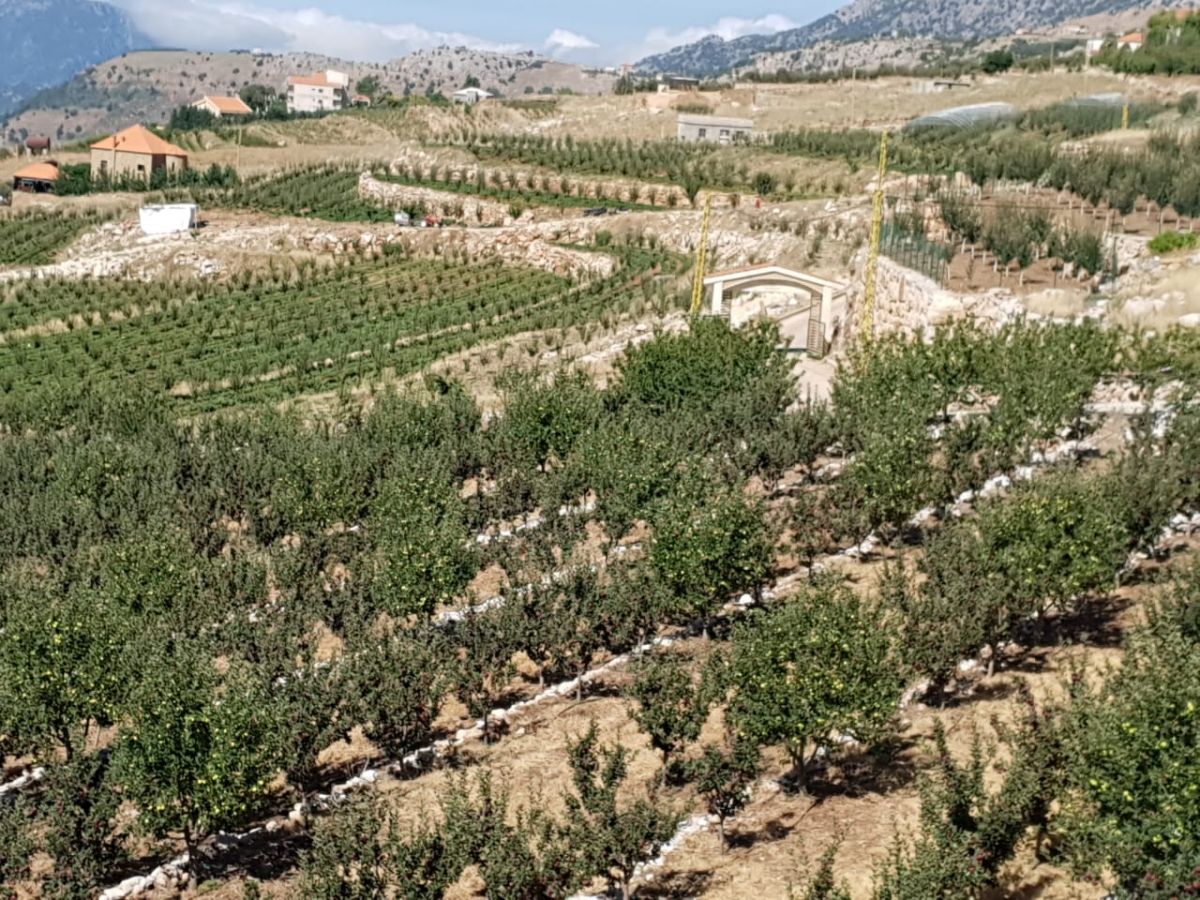
Theory and practice
The first part of the trainings was aimed to set a path for the theoretical understanding in the field of food production, sales and marketing, certification (like Fairtrade, Eco, Vege, etc.) and business strategy planning. 460 participants rated these trainings as very interesting and enriching. The second part of the trainings were a combination of theory and practice. In the second part, participants were evolving their skills that would give them the chance for future opportunities to start their own businesses and to strengthen the position of the Lebanese products on an international scale.
Efficient and ecological agriculture
In addition to the trainings, cooperatives that employ both Syrians and Lebanese also received seedlings and seeds of various herbs, vegetables and fruits (including olive trees, grapes, eggplants, thyme). PCPM is providing the appropriate equipment for growing plants and food processing, such as: greenhouses, stainless steel tanks, olive harvesting machines, for sowing, squeezing fruit. Our goal is to promote healthy and ecological solutions, that’s is why we equip Lebanese farmers with materials and equipment to prevent erosion by rehabilitation of terraces or water supply (promotion of solar farms, water pumps) etc.
We put all of our effort to provide the needed tools for Syrians and Lebanese in order for them to improve their abilities and to develop the country they live in. Providing special knowledge to female co-operatives and local producers is mainly aimed at increasing production through the trainings on agro food processing and capacity building. The development of the cooperatives is equivalent with the creation of new job vacancies, and protection of the natural environment through safety and prevention trainings.
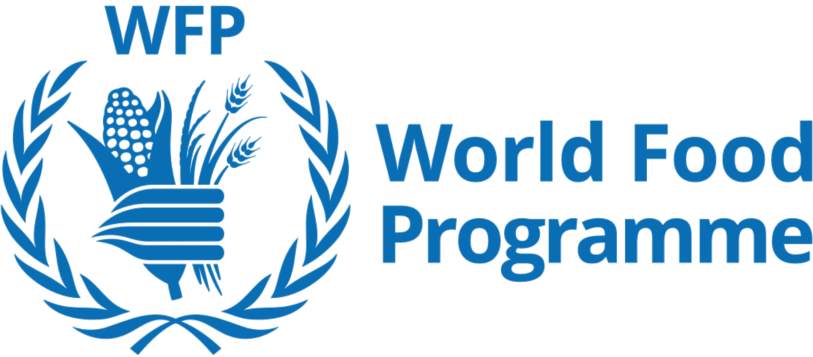
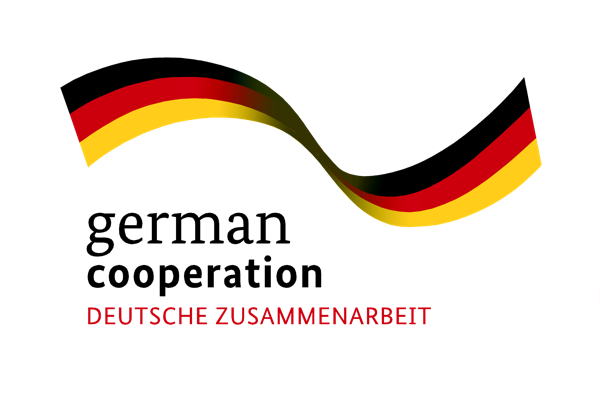
PCPM on Instagram: @fundacjapcpm
PCPM on Facebook: Polskie Centrum Pomocy Międzynarodowej (PCPM)